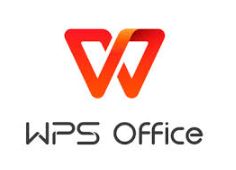Unlock the Power of Flashcards: Enhance Your Memory and Retention with Effective Techniques
Flashcards have long been recognized as one of the most effective tools for learning and memory enhancement. Whether you’re studying for a major exam, learning a new language, or simply trying to retain more information in your daily life, flashcards provide a structured and efficient way to boost memory retention. The simplicity of this method—using cards with questions on one side and answers on the other—belies its profound impact on learning. By tapping into the power of active recall and spaced repetition, flashcards can transform how you study and retain information.
The Science Behind Flashcards
Flashcards are effective because they engage the brain in active recall, a process that forces you to retrieve information from memory rather than passively reviewing it. Studies have shown that active recall strengthens neural connections, making it easier to retrieve the same information in the future.
Active Recall
When you look at a flashcard and attempt to recall the answer, you actively engage your brain in the learning process. This differs from simply reading or highlighting text, where information is absorbed passively. With active recall, your brain is more likely to create long-lasting memories because you’re forced to reconstruct the information from scratch.
Spaced Repetition
Another key to the success of flashcards is the use of spaced repetition. This method involves reviewing flashcards at increasing intervals over time. The concept is based on the “forgetting curve,” which suggests that we lose information over time if it is not reviewed. Spaced repetition helps combat this by reinforcing information just as it starts to fade from memory.
Apps like Anki have integrated spaced repetition into their flashcard systems, allowing users to maximize their retention without feeling overwhelmed by reviewing too much information at once. This makes flashcards an ideal study tool for long-term learning and retention.
Benefits of Using Flashcards
Flashcards offer a variety of benefits that make them an excellent tool for learners of all ages and subjects.
Customizable for Any Subject
One of the biggest advantages of flashcards is their versatility. You can use them to study any subject, from vocabulary and historical facts to complex mathematical formulas. Whether you’re a high school student, a medical professional, or learning a new hobby, flashcards can be customized to suit your needs.
Promotes Active Engagement
Unlike passive forms of learning, such as reading or watching videos, flashcards require you to actively participate in your learning. This helps keep you focused and engaged, making the study process more efficient.
Convenient and Portable
With modern flashcard apps, you can take your study materials with you wherever you go. Apps like Anki mobile allow you to access your flashcards from your smartphone, making it easy to study during downtime, such as on public transportation or during lunch breaks.
How to Use Flashcards Effectively
While flashcards are a powerful study tool, using them effectively requires strategy. Here are a few tips to get the most out of your flashcard study sessions:
Create Clear and Concise Flashcards
The key to effective flashcards is simplicity. Each card should focus on one piece of information. Overloading a card with too much data can lead to confusion and reduce its effectiveness. For example, if you’re learning vocabulary, stick to one word and its definition per card, rather than trying to memorize multiple words at once.
Mix Question Types
To keep your brain engaged, vary the types of questions you include on your flashcards. Instead of sticking to simple definitions or facts, try incorporating different formats such as true or false, fill-in-the-blank, or multiple choice. This will help challenge your brain and improve your ability to recall information in different contexts.
Use Both Sides of the Card
Maximize your study sessions by using both sides of the flashcard. One side can present a question, while the other side can display the answer. This allows for self-testing, which is a critical component of active recall. You can also alternate the order of your cards, sometimes starting with the answer and trying to recall the question.
The Role of Technology in Flashcards
While traditional paper flashcards are still effective, digital flashcards have taken learning to the next level. With flashcard apps like Anki, Quizlet, and Brainscape, students and professionals can access thousands of pre-made decks or create their own customized sets with ease.
Anki Mobile: A Powerful Tool for Modern Learners
Anki mobile is one of the most popular digital flashcard apps, known for its integration of spaced repetition. Users can create digital flashcards and study them at optimized intervals to ensure maximum retention. The app tracks your progress, prioritizing cards you struggle with and reducing the frequency of cards you’ve already mastered. This adaptive approach helps prevent overstudying and makes the learning process more efficient.
Whether you’re studying for a medical exam or mastering a new language, Anki mobile provides the flexibility to study on the go while maximizing your memory retention. The ability to sync across devices also ensures that your flashcards are always accessible, making it easier to fit study sessions into your daily routine.
Flashcards for Long-Term Learning
Flashcards aren’t just for cramming before exams; they can also be used as a long-term learning tool. Regularly incorporating flashcard study into your routine helps solidify knowledge over time, making it easier to recall information months or even years later.
Reinforce Learning Through Regular Review
To keep information fresh in your mind, it’s important to review your flashcards regularly. Incorporating spaced repetition ensures that you’re not forgetting what you’ve learned while reinforcing important concepts as needed. This makes flashcards a valuable tool for subjects that require long-term retention, such as foreign languages, science, and professional certifications.
Combine Flashcards with Other Study Techniques
While flashcards are incredibly effective, combining them with other study techniques can enhance your learning experience. Pairing flashcards with active note-taking, group discussions, or teaching the material to someone else can solidify your understanding and make the information more meaningful.
Conclusion
Flashcards remain one of the most effective and flexible tools for enhancing memory and improving retention. Utilizing active recall and spaced repetition helps strengthen neural pathways and makes it easier to remember key information. Whether you use traditional paper flashcards or opt for digital tools like Anki mobile, incorporating flashcards into your study routine is a proven way to boost your learning efficiency. With the ability to tailor your flashcards to any subject and carry them with you wherever you go, there’s no limit to the knowledge you can retain.






